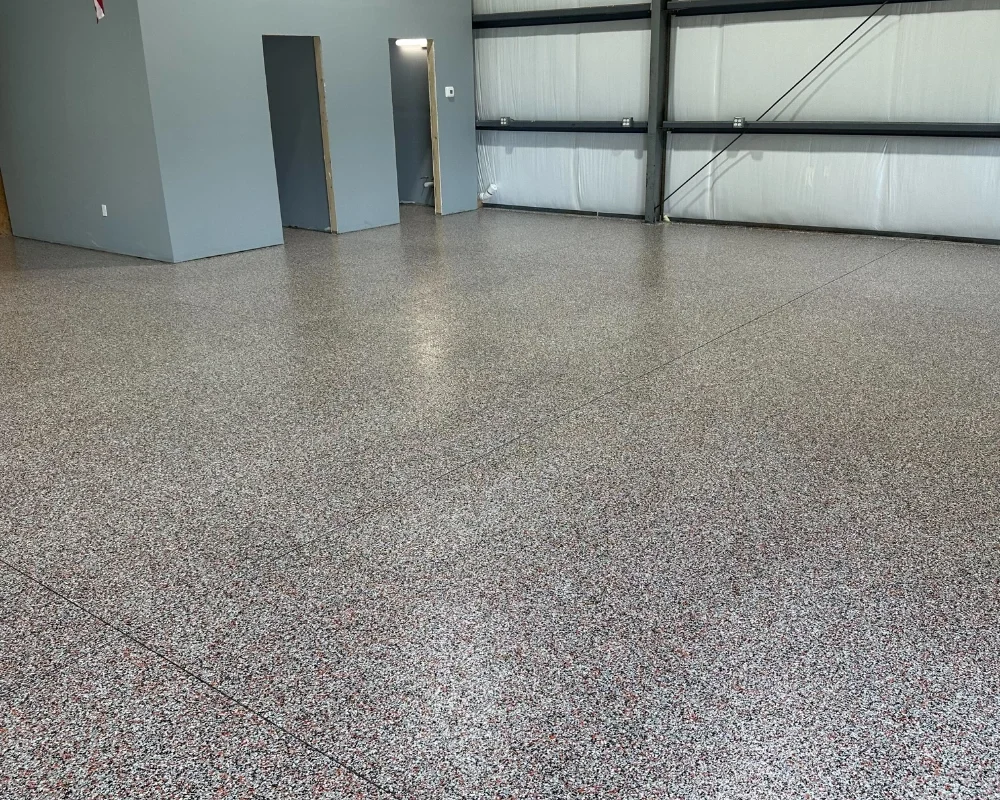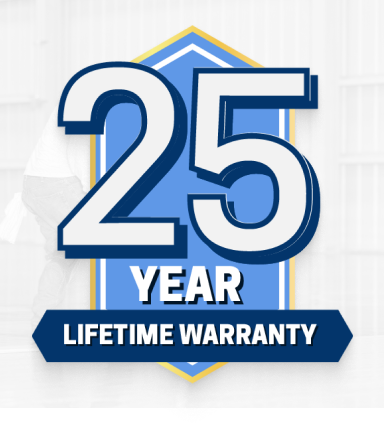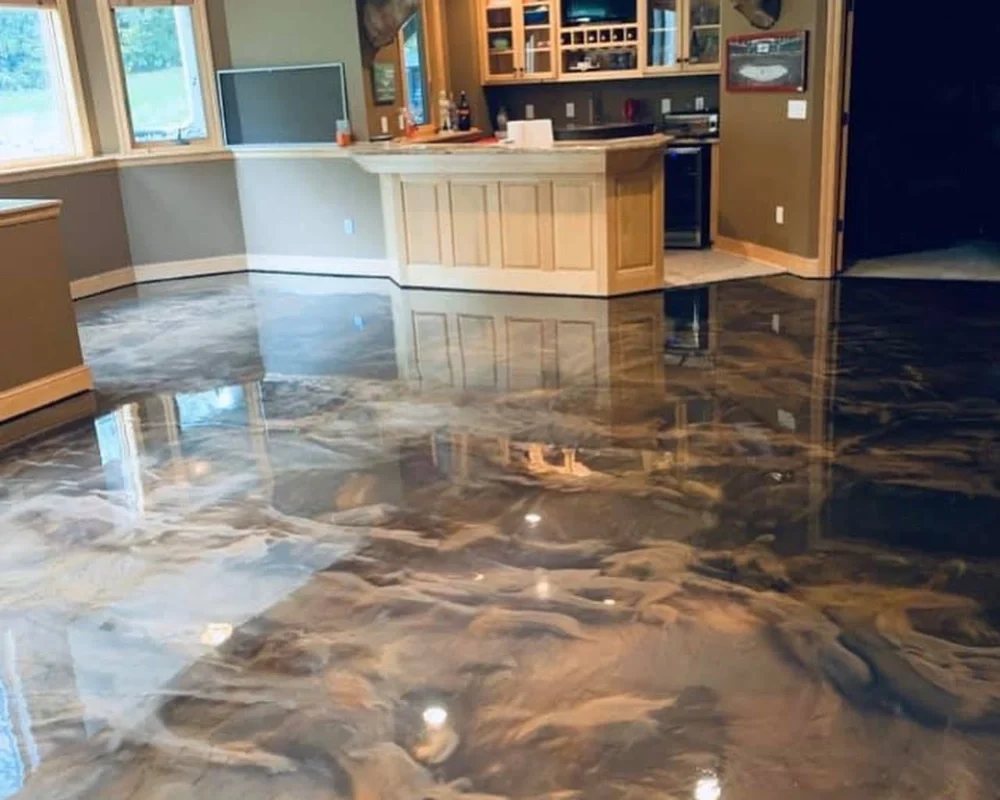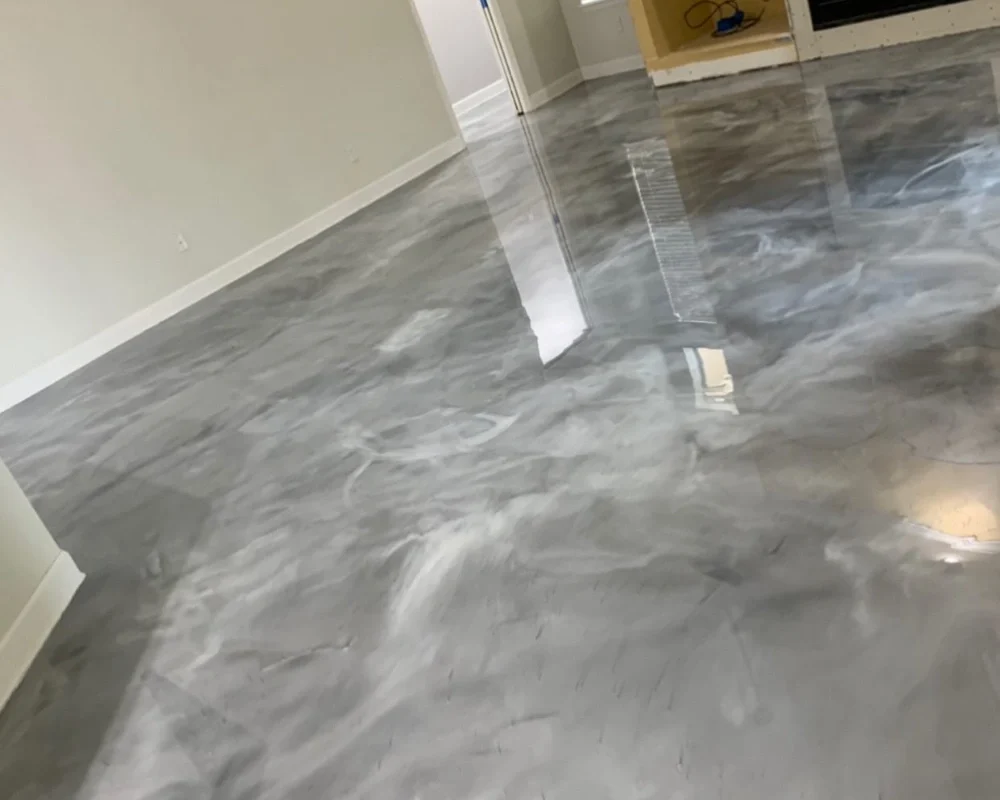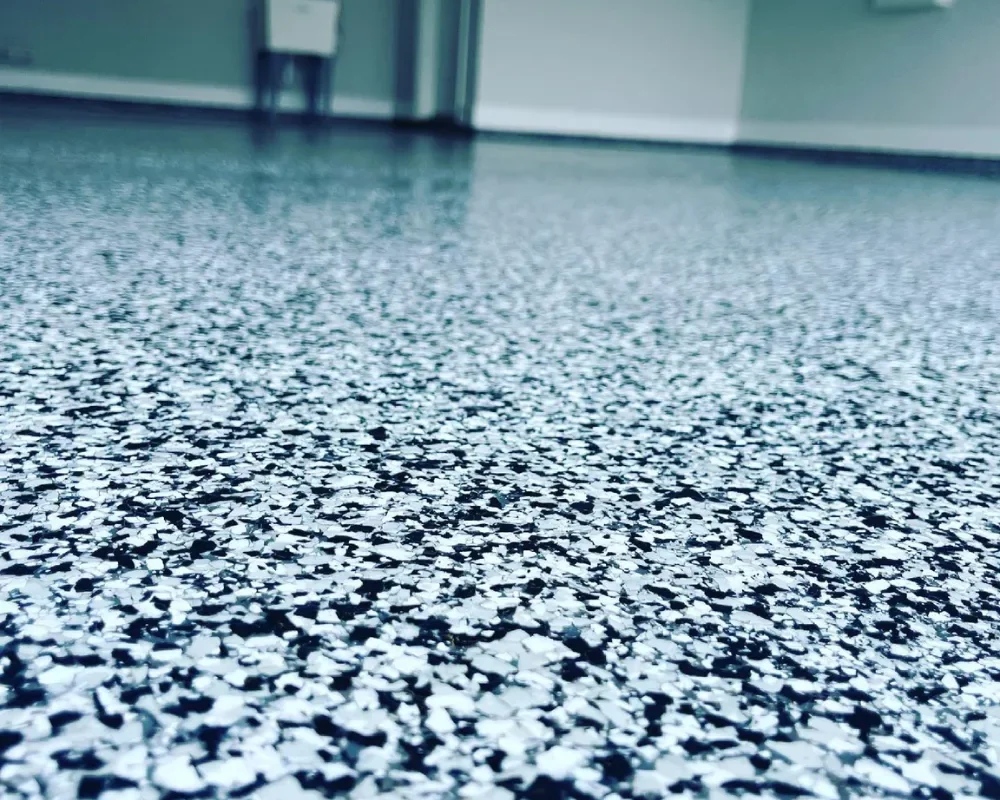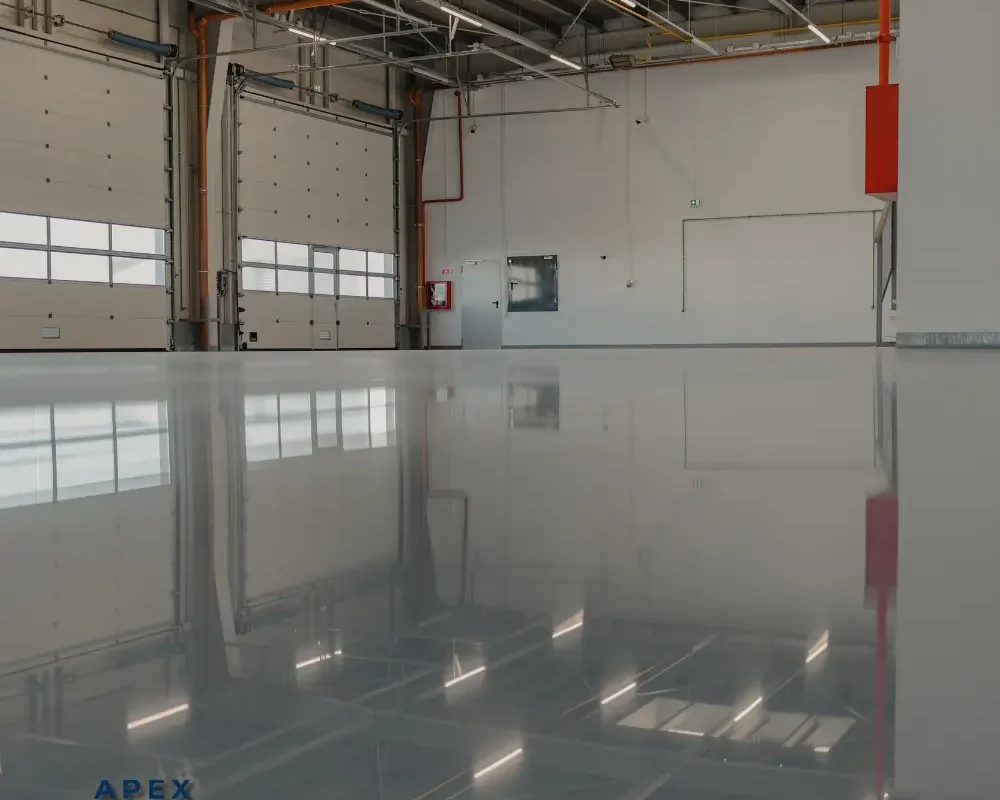
Giovanni
August 6, 2025
Table of Contents
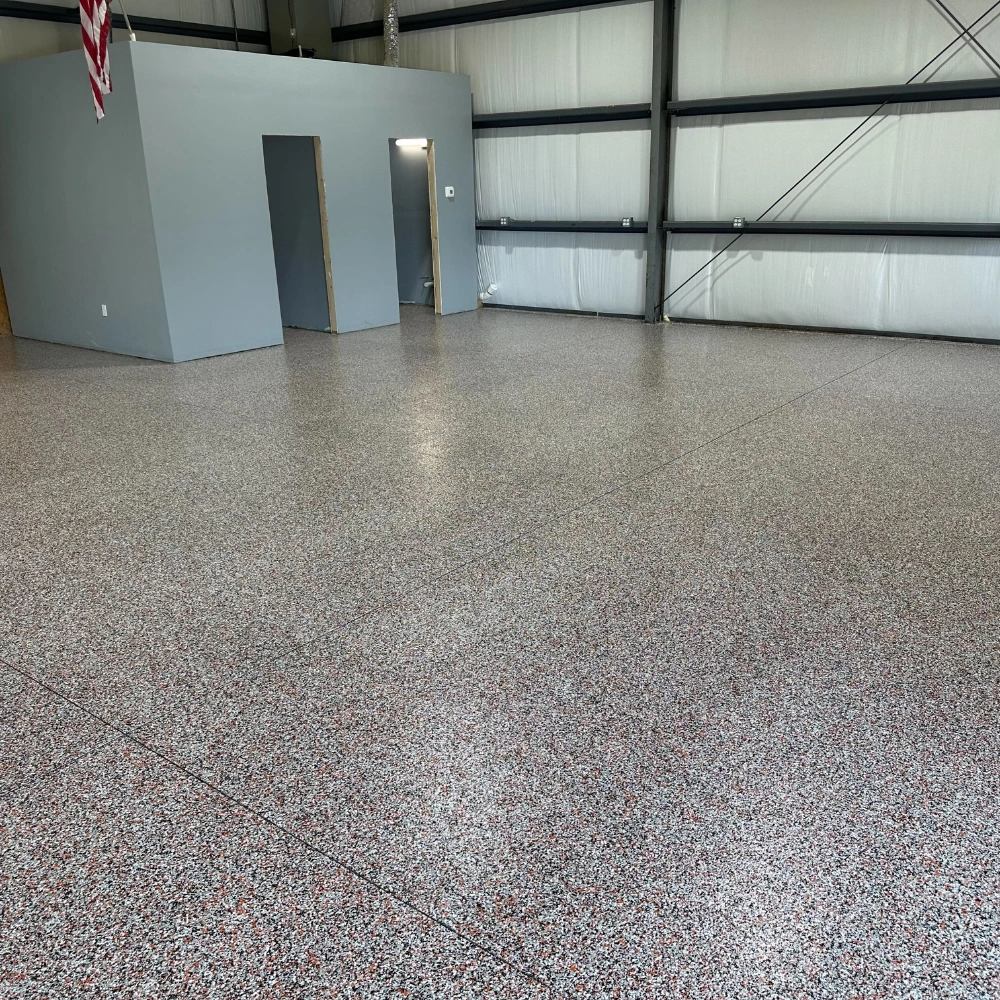
If your garage floor is cracking, peeling, or stained, it’s time for an upgrade that actually lasts. In Florida’s heat, humidity, and heavy rainfall, basic concrete or old paint just won’t cut it. That’s where polyurea garage floor coating comes in.
It cures quickly and delivers a clean, durable finish built to last, perfect for Florida homes and garages. Whether you’re in Jacksonville, Tampa, or anywhere in between, you can get same-day installation and a 25-year warranty that protects your space and peace of mind.
Ready to transform your garage into a clean, tough, and modern surface? Here’s why polyurea is Florida’s top choice.

Why Polyurea Garage Floor Coating Is Taking Over Florida Homes
Polyurea garage floor coating is a high-performance, fast-curing solution designed to protect and upgrade concrete surfaces. It forms a strong, flexible layer that resists cracks, stains, chemicals, and UV damage.
Unlike older coatings, polyurea sets fast and protects your floor against cracks, stains, and UV damage, with no long wait for use. This coating is also 4x stronger than standard options.
It won’t chip, peel, or bubble under pressure, which makes it perfect for garages, driveways, and workspaces. You need a floor to handle the heat, humidity, and heavy rain. Polyurea does it all with ease, plus it looks great for years with minimal upkeep.
Polyurea vs Epoxy: What’s the Real Difference?
If you are deciding between polyurea and epoxy for your garage floor, here is a side-by-side look at what matters most, especially for Florida homes.
Feature | Polyurea Garage Floor Coating | Epoxy Coating |
Durability | High chemical & impact resistance | Moderate durability |
Cure Time | Ready in 24 hours | Takes 3–5 days to cure |
UV Resistance | Excellent—won’t fade in Florida sun | Prone to yellowing or discoloring |
Heat Resistance | Withstands extreme temperatures | Less effective in high heat |
Flexibility | Expands/contracts with concrete | Brittle, can crack over time |
Maintenance | Easy to clean, non-porous surface | Needs more care to maintain its shine |
Installation Time | One-day install (walk on in 8 hours) | Multi-day process |
How Polyurea Garage Floors Handle Florida’s Weather
From sun-soaked driveways to humid garages, polyurea coatings stand up to every Florida element. The waterproof basecoat locks out moisture, while the UV-stable formula prevents fading, even under constant exposure.
The UV-resistant formula prevents fading or yellowing, even under constant sun. And with excellent heat tolerance, it stays strong through Florida’s temperature swings.
Custom Polyurea Floors with a Finish That Fits Your Style
Just because your garage floor is tough doesn’t mean it can’t look great too. You can customize your polyurea garage floor coating to match your personal style and space.
Choose from matte, satin, or gloss finishes for the exact look you want. We offer custom flake blends, rich color pigments, and texture options that add both style and grip. Anti-slip agents to prevent slips and falls, especially in wet or high-traffic areas.
You can also explore our full range of coatings, including flake, quartz, and metallic options, all professionally installed with care.
Fast Polyurea Garage Floor Installation Process

The installation process follows a proven method to ensure the garage floor is done right the first time, quickly, precisely, and without added stress.
Floor Prep with Diamond Grinding
Start by removing old tile, paint, or coatings using industrial diamond grinding tools. This step levels the surface and opens the pores of the concrete, creating a clean, solid base for maximum adhesion.
Layered Application of Polyurea
Multiple layers of polyurea coating are applied to create a strong, durable, and sleek finish. Materials used are EliteCrete-approved for long-lasting performance in Florida’s climate.
Curing and Final Inspection
The floor is ready for light use within 8 hours and fully cured in 24 hours. A final inspection is done to ensure everything meets top standards before the project is complete.
Where Else Can You Use Polyurea Floor Coatings?

Polyurea garage floor coating works well beyond just garages. It’s a practical choice for both residential and commercial spaces, including auto showrooms, warehouses, retail stores, workshops, and airports.
The surface handles heavy equipment, rolling carts, and high foot traffic without wearing down. Its chemical-resistant finish also blocks oil, salt, and stains, making it suitable for clean zones as well as high-use work environments.
How Much Does a Polyurea Garage Floor Cost?
- Garage size matters: Pricing varies depending on whether it’s a 2-car or 3-car garage.
- Surface condition affects prep time: Older or uneven concrete may require extra grinding or repair.
- Finish and style options: Matte, gloss, satin, or flake blends can slightly impact the final cost.
Optional add-ons
- 4” wall base for a clean, wrapped look
- Anti-slip textures for added safety
- Custom flake colors or patterns
Included in every quote
- Diamond grinding preparation
- Same-day installation
- 25-year warranty with no hidden fees
Why You Shouldn’t DIY Your Garage Floor
DIY kits may seem like a simple solution, but they often lead to short-term results. Without proper tools and prep, like concrete grinding, coatings can peel, bubble, or wear out fast.
Most kits also lack warranty coverage, leaving you to handle repairs and reapplications on your own. Professional installation ensures lasting adhesion, an even finish, and peace of mind from day one.
Why Businesses and Homeowners Choose Polyurea Coatings
In high-use spaces, flooring isn’t just about looks; it’s about performance. Polyurea garage floor coatings are becoming the go-to choice for Florida property owners who want durability without downtime.
Here’s what makes them the smarter solution:
- Built for Daily Use: From residential garages to busy commercial workshops, polyurea stands up to constant movement, heavy loads, and messy jobs.
- Quick Turnaround, Minimal Disruption: Fast-curing technology means installations are completed in one day, with no long closures or waiting periods.
- Effortless upkeep: Polyurea’s non-porous finish resists grime and stains, helping floors look fresh with minimal effort.
Custom Appearance, Professional Finish: Whether you’re designing a retail space or refreshing a garage, the coating can be tailored in color, flake size, and texture for a polished, professional result. - Weather-Proof Reliability: With UV resistance, moisture protection, and high heat tolerance, polyurea floors stay strong year-round, without fading, peeling, or cracking.
Ready to Upgrade | Get Florida’s Toughest Garage Floor
Want a clean, durable garage floor that’s built to handle Florida heat, rain, and wear? Polyurea garage floor coating gives you a sleek finish, fast one-day installation, and long-term protection, all backed by a 25-year warranty.
Contact Apex Flooring to get your free estimate and upgrade your garage with a floor that works as hard as you do.
Frequently Asked Questions
Polyurea coatings can last 15–20 years with proper care. Apex uses high-quality materials and offers a 25-year warranty for extra peace of mind.
You can walk on the floor after 8 hours and park your car after 24. It cures quickly and is ready to use the next day..
You can pick from high gloss, satin, or matte finishes. Textured and anti-slip options are also available for safety and style
Yes, it handles heat, moisture, and UV rays much better than epoxy. That makes it a perfect fit for Florida’s weather.
Final Thoughts
Polyurea garage floor coating offers a smart, long-term solution for homeowners looking to improve both the look and performance of their space. With its fast-curing application, it stands up to Florida’s climate and daily use without losing its appeal. For those seeking durability, safety, and a polished finish, polyurea flooring delivers both function and style that lasts.
Table of Contents
Related Epoxy Flooring News

Polyurea Garage Coating Florida | Heat & Weather-Proof Floors
If your garage floor is cracking, peeling, or stained, it’s time for an upgrade that

Epoxy Kitchen Floor & Indoor Epoxy Flooring in Florida
Get a durable, easy-to-clean epoxy kitchen floor that resists heat and spills. Call now

What Makes Marble Epoxy Floors a Smart Choice
Get a marble epoxy floor with a luxury look and lasting strength. Ideal for Florida
